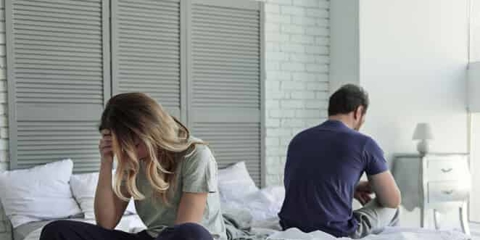Traditional marriage vows include the phrase, “I take you to be my wife/husband … in sickness and in health.” So what happens when that vow is really put to the test?
A new study conducted at Iowa State University analyzed how one spouse being diagnosed with a serious illness affected the divorce rate. Amelia Karraker, the lead author of the study, is an assistant professor of human development and family studies at Iowa State. She and her colleague, Kenzie Latham, an assistant professor at Indiana University–Purdue University Indianapolis, analyzed data from the Health and Retirement Study.
Who Has Higher Divorce Rate After Serious Illness?
The study showed a probability of a 6 percent higher divorce rate when the wife got sick. A husband being ill did not affect the divorce rate.
But we can’t assume it’s always the husband initiating the divorce after his wife becomes ill. The data did not indicate which spouse had initiated the divorce – the healthy one or the sick one. My guess is that in some instances the sick spouse may actually have started the proceedings. Maybe they have been reminded that life is short and they no longer want to spend precious time with this person. Or perhaps they have determined that their spouse has no interest in taking care of them in their time of need.
The finding of a higher probability of divorce if a wife gets sick confirms a previous study done in 2009 by Dr. Marc Chamberlain, a Seattle oncologist, with Dr. Michael J. Glantz of the University of Utah Huntsman Cancer Institute of 515 patients who were diagnosed with brain tumors or multiple sclerosis from 2001 to 2006.
As reported in an NYT blog on the study, women were seven times more likely to be separated or divorced than men with similar health problems. “When the man became ill, only 3 percent experienced the end of a marriage. But among women, about 21 percent ended up separated or divorced.”
Dr. Chamberlain, who initiated the study after observing how many of his female patients with brain tumors did not have support at home, theorizes the difference has to do with the different roles of men and women.
“There clearly is an emotional attachment women have to spouse, family and home that in times of stress causes women to hunker down and deal with it, while men may want to flee,” he said.
To read more about the studies:




.jpg)